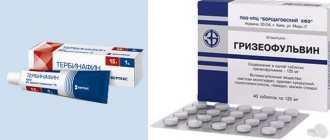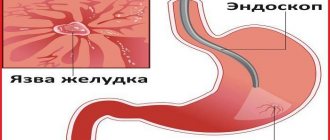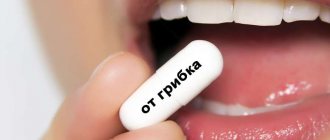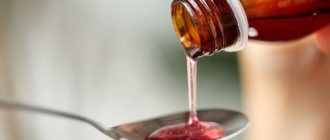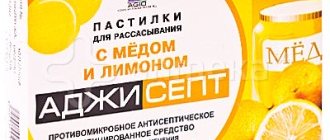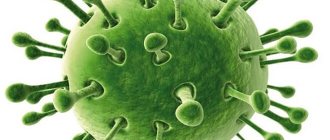Antiviral drugs for rotavirus infection are a component for successful treatment. Antiviral treatment is not enough; it is necessary to find an effective and safe medicine for rotavirus infection for children.
Antiviral drugs that act on intestinal infections are indicated for adults with reduced immunity and resistance to infectious and viral diseases.
Specific antivirals for rotavirus infection have not been developed. Treatment of rotavirus infection requires a set of measures.
Effective treatment is pathogenetic and symptomatic. The comprehensive treatment plan includes detoxification and antiviral medications, antiemetics, and antipyretics. The exact treatment plan and dosage are prescribed by the attending physician. There is no point in risking the child’s life and treating it yourself.
Prevention of rotavirus in children
You won’t have to take medications if you remember about this disease and regularly prevent it. You need to know the sources of infection. The majority of viral intestinal infections are transmitted through dirty hands. Items and clothing, personal hygiene products - everything can retain intestinal flu on its surface. If an infected person holds on to a handrail on a bus or uses a shopping cart in a supermarket, he leaves behind a colossal amount of germs that can infect more than one person. The infection can be transmitted through toys, food, and water.
To keep your child safe, teach him to wash his hands all the time and use only personal hygiene products. Immediately upon returning from the street, the baby should use antibacterial soap. The use of antiseptic gels is also encouraged in cases where there is no water nearby. Prevention of rotavirus can be carried out with the help of medications. Medicines used for this are sorbents and probiotics. But these drugs will not guarantee protection if antiseptic rules are not followed.
Why antibiotics don't work
Hundreds of different antibiotics are used in modern medicine. Many of them have a wide spectrum of action and o. But even they are unable to cope with rotavirus.
The fact is that an antibiotic is designed to fight microorganisms, mainly bacteria. The most powerful antibiotics can also destroy some fungi and so-called protozoa (amoebas, lamblia, and so on). But viruses are neither microorganisms nor organisms in general. They don't even have a cellular structure.
It is simply genetic material (DNA or RNA molecule) packaged in a protective shell (capsid). Such a viral particle (virion) does not feed, does not breathe, does not excrete waste (that is, there is no metabolism). She can't even be called alive.
Being outside the body of an animal or plant, no virus can reproduce. But if it penetrates the body, interaction with cells begins due to purely chemical laws. The infected cell can no longer perform its functions and turns into a factory for assembling new copies of the virus. When the immune system recognizes viral sabotage, it synthesizes special substances that neutralize the virus and destroy damaged cells. This process takes some time, but when it is completed, the body quickly recovers and then becomes immune to the virus that has affected it.
Sometimes such immunity lasts for life, but more often after a few years it disappears, and then the possibility of infection again arises.
There are several million different types of viruses on Earth. Some infect animals, others - plants, and others - bacteria. Wherever there is at least one living cell, some kind of virus can burrow into itself. However, they have varying degrees of infectiousness and lethality.
For example, you can, as they say, eat from the same plate with a person infected with the HIV virus, and nothing bad will happen, but if you travel a couple of stops on a bus in which a person with the flu is traveling, then infection will almost certainly occur.
Rotavirus, like the common flu virus, is one of the most sticky and tenacious. Therefore, this infection thrives no matter what.
Treatment of the disease: list of necessary means
What medicine to use for rotavirus if infected? A specialist should describe the treatment regimen and prescribe certain medications. Show your baby to a pediatrician or infectious disease specialist. You may have to undergo some tests. The list of prescribed drugs may vary. Doctors usually use the following medications:
- symptomatic remedies (for nausea, vomiting and diarrhea);
- cleansing agents (sorbents and enterosorbents);
- improving well-being (antipyretic and painkillers, antispasmodics);
- replenishing fluid deficiency;
- antibiotics and antivirals;
- immunomodulators;
- restoring intestinal microflora.
For individual indications, drugs of other directions may be prescribed. Let's look at what medications are used for rotavirus.
Anti-diarrhea medications
Not a single intestinal flu goes away without digestive upset. Diarrhea is a constant companion of infection. Diarrhea is frequent loose stools accompanied by flatulence and abdominal pain. Often, stool becomes greenish in color and has a foamy consistency. What medications for rotavirus are effective in this case?
Loperamide-based drugs will help you against diarrhea. Their trade names are Loperamide Stada, Imodium, Loperamide, Lopedium, Superilol. All of them are contraindicated for children under two years of age. Some formulations are not prescribed for children under 6 years of age. It is also prohibited to take these medications in case of severe liver failure and suspected intestinal obstruction. Diphenoxylate-based drugs are prescribed less frequently.
First aid for a baby
First of all, parents should reassure the child. It is also important for adults to remain calm, so as not to scare the baby with their panic. Next, it is important to determine whether the child needs urgent medical attention.
Call your pediatrician at home in the following cases:
- The child's age is up to three years.
- Attacks of vomiting are constantly repeated throughout the day.
- Along with vomiting, the child experiences fever and diarrhea.
- The baby is lethargic and weak.
- The child refuses to drink.
- A rash appeared on the baby's skin.
- The vomit contains bile or drops or streaks of blood.
We recommend watching a video in which the pediatrician gives recommendations to parents on what to do if their child is vomiting:
Calling an ambulance is necessary if:
- Vomit entered the child's respiratory tract.
- Vomiting is caused by the entry of a foreign body into the lumen of the esophagus.
- Vomiting is one of the symptoms of head injury.
- The child has lost consciousness or is confused.
- The baby complains of acute pain in the abdomen.
- Vomited more than 4 times in the last 2 hours.
Read more: Carnosine - reviews, instructions, indications
To help a child fight rotavirus, it is necessary to follow the clinical recommendations developed by the medical community.
These recommendations include rules and treatment tactics to eliminate the symptoms of the disease and restore balance in the body after an infection. Treatment of rotavirus is symptomatic.
The disease has a favorable prognosis if the doctor's instructions are followed.
First aid
Rotavirus (also called intestinal flu) appears quite often in children. The disease “ripens” within 1-4 days, and its first signs can appear within a day after infection.
The standard course of the disease begins with:
- sudden increase in temperature;
- vomiting;
- loose stools;
- excess gas formation.
Thus, when deciding what to do if you suspect an infection, you should first of all pay attention to the most striking symptoms and start with symptomatic treatment.
Treatment of rotavirus infection in children, if it is not accompanied by complications such as incessant vomiting or extremely high fever, follows a standardized scheme in accordance with clinical recommendations for providing medical care to children with rotavirus infection.
It is better to reduce the temperature with suppositories, as the tablets may not have time to be absorbed due to vomiting. You can go for walks with your baby, but only if the body temperature has returned to normal.
This rule does not apply to medicinal drinks, namely those that restore water balance (for example, Regidron) and do not allow the body to become dehydrated.
The main visible problems in the child are watery stools and frequent urge to have bowel movements. In this situation, the body loses a lot of fluid. Therefore, to replenish it, it is vital to give the child water. A suitable drink would be tea with lemon or berry juice.
You can put your digestion in order by taking age-appropriate medications:
- Activated carbon,
- "Smecta" or its analogues.
- age,
- conditions of infection,
- detection time,
- immunity status, etc.
The average duration of the disease is up to 7 days. At an older age, the child’s body produces antibodies that significantly shorten the duration of the disease and facilitate its course.
Specific therapy, as a rule, is not used, but the main manifestations of the disease will have to be eliminated.
One of the main problems with rotavirus is dehydration. A large amount of fluid and nutrients is lost or does not enter the body during diarrhea, vomiting, increased sweating, high fever, and refusal to eat.
Therefore, it is necessary to organize a regular supply of fluid to the body to meet its needs, as well as to quickly flush out and eliminate toxins through the kidneys. The volume of fluid consumed is adjusted depending on the age of the baby.
Up to a year you should give a coffee spoon of water. If it is absorbed, repeat the procedure every 10-20 minutes.
- From one to 3 years old, you can start with a teaspoon, and if everything is in order, increase the dose to a dessert one.
- At 4 and 5 years old, children can independently drink water from a mug in small sips if they do not feel sick.
- There are special preparations for rehydration:
- Regidron,
- Oralit,
- Normagidron,
- Hydrovit,
- Humana electrolyte.
They are available in powders. 1 sachet of this product is dissolved in a liter of water and given to children according to the indicated dosage.
If treatment with these powders is unavailable, you can use:
- warm drinking water,
- light compote of dried fruits,
- chamomile flower tea,
- rice water
If the body rejects the liquid you drink, it is necessary to take the child to the hospital, where the baby will be given a drip to avoid dehydration.
A high temperature is a sign that the body is actively fighting infection. But if it reaches a value of 38.6 degrees or higher, you will have to reduce it - overheating can cause convulsions.
The most effective antipyretics for children:
- syrup with ibuprofen (used at a certain dosage according to age and doctor’s prescriptions);
- rectal suppositories (“Cefekon” or “Efferalgan”). They are installed every 2 hours.
Pain in the intestines should be relieved with antispasmodics. “No-shpa” is considered a universal remedy. It can be used according to the age dosage.
The doctor may also prescribe the child an intestinal receptor blocker, Ribal. It reduces the urge to vomit and is suitable for relieving spasms in the gastrointestinal tract. Children over 6 years of age should be given it in tablets, 1 three times a day. Syrup is suitable for children from 2 to 6 years old. The daily dosage is 30-60 ml and is divided into 3 doses.
Detoxification
The fight against toxins that affect internal organs during rotavirus infection is an important part of treatment. It must be carried out with the help of enterosorbents.
To remove toxins, your doctor may recommend:
- Smecta;
- activated or white carbon;
- Enterosgel.
The main thing is to follow the dosage and not allow the timing of taking enterosorbents to coincide with antispasmodics and antipyretics.
Nutrition
The diet of a sick child should be dietary. Dairy, meat, fatty, fried, spicy and sour foods should be excluded from it.
Read more: Causes and characteristics of symptoms of pain in the sternum with osteochondrosis
The following are suitable for supporting nutritional strength:
- liquid rice porridge,
- mashed potatoes with water,
- low-fat chicken broth,
- crackers, bread sticks, dryers, bananas (as dessert),
- fruit drinks, jelly, dried fruit compote with a small amount of sugar (from drinking).
It is good to restore the intestinal microflora with probiotics - preparations with bifidobacteria:
- Bifidumbakturin,
- Atsipol,
- Linux and the like.
They are taken starting from the third day of illness.
Whether it is worth resorting to it in the absence of specialized drugs for rotavirus - only the doctor can decide. The following medications can provide immune support:
- Anaferon,
- Viferon,
- Lycopid.
Thus, antiviral treatment should be carried out comprehensively:
- First we deal with the symptoms.
- Then we remove toxins.
- We organize dietary meals.
- We normalize digestion.
- We support immunity.
Antibiotics
Sometimes, when treating rotavirus, doctors prescribe antibiotics, diagnosing an unidentified acute intestinal infection. But they will not have much effect, since the disease is viral and not bacterial in nature.
It makes sense to use antibiotics when:
- the presence of blood in the stool,
- suspected cholera,
- prolonged diarrhea with Giardia in the stool.
In other cases, the prescription of antibiotics is more likely a reinsurance than a full-fledged treatment.
Most often, children are treated for rotavirus at home. But sometimes you have to go to the hospital. In fact, there are few differences between these types of treatment - in both cases it is necessary:
- provide the body with sufficient fluid,
- stabilize body temperature,
- choose a therapeutic diet,
- ensure the strengthening of the body.
The main difference between a hospital is that people go there in difficult situations, for example, with incessant vomiting and diarrhea, when the child’s dehydration becomes critical. Another difference is that at home, in addition to medications, folk remedies are sometimes used.
Folk remedies
Folk remedies should be used exclusively:
- in combination with medications,
- after consultation with a doctor,
- if the child is not allergic to the components of the product.
Dried blueberries have anti-inflammatory and disinfectant properties. Blueberry compote will be useful for the gastrointestinal tract - it will help remove toxins from the body faster.
Water based on dill seeds helps cope with intestinal colic. A teaspoon of seeds is infused in a glass of boiling water. For children over 2 years old, you can give 500 grams of infusion every 2 hours.
Raspberries will help reduce the temperature. You can brew tea from raspberry leaves - a tablespoon of the product per glass of boiling water. You can make a fruit drink from raspberry jam and drink it 1-3 times a day. You can also relieve the heat with water rubdowns (without alcohol).
How to treat at sea
At sea, treatment of infection will not differ from treatment at home. Since the infection is acute, medical insurance will cover the costs and the receiving party will be obliged to provide the baby with qualified care.
However, you should take care in advance to help your child and protect yourself as much as possible from “acquaintance” with the disease by observing the following rules:
- Take enterosorbents, antipyretics, and antiviral drugs with you in your first aid kit so that you can provide help faster.
- Do not buy food from beach vendors - they can carry rotavirus.
- Try to eat at catering establishments less often. If possible, it is better to cook your own food.
- Wash purchased foods thoroughly before eating.
- Wash your hands before eating.
- Boil water and milk for drinking. Use bottled, not tap water.
- Wash toys periodically.
- Always have disinfectant wipes and gels with you.
- If you have the opportunity to choose disposable or reusable tableware in catering establishments, it is better to give preference to disposable tableware.
- Do not under any circumstances allow the body to become dehydrated. Not only the digestive system, but also the nervous system can suffer from this, and the functioning of the lungs can also be disrupted.
- If the child does not want to drink, the solution should be instilled into the mouth with a regular disposable syringe.
- The first infection (from 6 months to 2 years) is a severe intestinal infection.
- The diagnosis can only be made in laboratory conditions, so the treatment tactics for watery stool will always be the same.
- You should not force feed a child when sick. 1 day of fasting will not cause mortal harm to the body.
- You should always have oral rehydration products in your first aid kit at home. If you don’t have them, you can prepare it yourself - dissolve 2 tablespoons of sugar, 1 teaspoon of salt and 1 teaspoon of baking soda in a liter of water.
- Vaccination is the only effective method of prevention. protects by 80% from the disease and by 90-95% from its severe forms.
- It is worth getting vaccinated between the ages of 1.5 and 8 months. Later, the child’s body will begin to produce antibodies on its own.
Interesting articles:
- Weak immunity in a child: what parents should do, causes and symptoms
- Rotavirus in children antiemetic drugs immunity vaccinations recovery
- Omega 3 for children - rating of the best drugs and reviews
- Vitamin D deficiency in children: symptoms and treatment of deficiency
Anti-vomiting drugs
The second most popular sign of intestinal infection is nausea and vomiting. They do not occur to everyone. Young children are most susceptible to such manifestations. In adults, this symptomatology is found quite rarely. If a child vomits from every intake of liquid, then hospital treatment is necessary. For rare attacks, outpatient therapy is possible.
There are different medications for rotavirus that combat vomiting. The doctor may prescribe domperidone-based medications. These are drugs such as Motilium, Motilak, Passazhiks, Domstal and others. They are available in the form of suspensions and tablets. The latter form, due to its high dosage, is not prescribed to children under 5 years of age.
Doctors also use drugs based on metoclopramide. These are medications such as Cerucal, Reglan, Metamol, Perinorm. It is prohibited to use these drugs during pregnancy and lactation, in case of intestinal obstruction and bleeding in this area.
Medicines that restore electrolyte and water balance
The next medicine for rotavirus that can be prescribed by a doctor is rehydration solution. Dehydration occurs during diarrhea and frequent vomiting. This condition is dangerous for an adult, and can even lead to death in a child. When the body is dehydrated, the blood thickens and there is a risk of blood clots. Death occurs when fluid deficiency is more than 20%. The following medications are used to restore normal levels of electrolytes, salt and water in the body:
- "Sodium bicarbonate" (used for infectious dehydration).
- "Sodium chloride" (prescribed during acute diarrhea).
- “Sodium citrate” (recommended for blood thickening).
In the pharmacy chain you can purchase a complex medicine: “Regidron”, “Citraglucosolan”, “Hydrovit Forte”. They contain sodium chloride, sodium citrate, potassium chloride and dextrose anhydrous. These medications are usually produced in powder. The bulk substance must be diluted before use and consumed in small portions at short intervals.
Causes and symptoms of rotavirus infection
The disease is a disorder of the structure and functional activity of the digestive tract. The pathogen is transmitted primarily through the fecal-oral route through contaminated food, water and household items.
The development of inflammation in children is caused by the penetration of rotavirus into the tissues of the stomach and intestines, which is accompanied by pain, fever, nausea, vomiting, diarrhea and other signs of intoxication. In severe cases of pathology, symptoms of dehydration appear.
Medicines to prevent intoxication
During an infection, a rotavirus cleansing medicine must be used. Sorbents have different release forms. You can purchase tablets, powders, gels, pastes or solutions. Consult your doctor and choose the most suitable remedy. The most popular drugs used for rotavirus are Polyphepan, Enterosgel, Polysorb and Activated Carbon.
Please note that the medications described must be taken separately from other medications. All sorbents remove toxins and poisons, bacteria and viruses from the body. At the same time, they eliminate the therapeutic effect of the medications taken. Such formulations are used regardless of age and concomitant diseases. They are not absorbed into the bloodstream and are excreted in their original form.
How to treat intestinal flu
Currently, there is no remedy aimed at treating rotavirus infection directly, so the therapeutic course for patients is complex.
Rehydration
The specific manifestations of the disease are such that the body suffers from dehydration: during diarrhea and vomiting, liquid is removed from the body in large quantities. Therefore, an important point in treatment is rehydration - replenishment of lost fluid. The most effective drug for these purposes is Regidron.
In order not to provoke new attacks of vomiting, in the acute period of the disease the liquid should be taken in very small portions, up to a teaspoon.
Important! If the process of dehydration continues for more than a day, and taking even small portions of water causes vomiting, intravenous fluid administration is required in a hospital setting.
Sorbents
To remove toxins from the body, sorbents are used - special preparations that bind and remove waste products of a spherical pathogen: Smecta, Enterosgel, Polysorb.
Tidy up your intestines
- During the treatment of the disease, restoration of the intestinal microflora is required. Starting from the 3-4th day of illness, it is recommended to take the following medications: “Normobakt”, “Bifidumbacterin”, “Linex”.
- Against the background of the disease, pathogenic flora often develops in the intestines. To prevent this, the drugs Enterefuril and Enterol are prescribed.
Antiviral compounds
What medicine is used for rotavirus in children? When pathology appears in children, doctors recommend the use of antiviral compounds. The child's body is weak enough to cope with the problem on its own. Immunomodulatory agents will help restore the body's resistance and cope with viruses.
The most popular medications are:
- "Anaferon" (affinity purified antibodies to interferon).
- "Ergoferon" (antibodies to interferon gamma).
- "Tsitovir" (thymogen, benzazole, ascorbic acid) and so on.
The same list includes rectal suppositories based on interferon: “Kipferon”, “Genferon”, “Viferon”. Some drugs can only be used after a year. Therefore, it is advisable to study the instructions before use.
Antiseptics for the intestines
What medications are used for rotavirus at sea? An infection acquired from a public body of water is often bacterial in nature. This disease requires the use of antiseptics and antimicrobial compounds. These include “Ersefuril”, “Stopdiar”, “Enterofuril” and others. They contain the main component nifuroxazide.
This active substance works exclusively in the intestines. It is not absorbed into the blood, so it can be prescribed to children in the first year of life. The medication does not have a negative effect and does not cause adverse reactions. You need to take the medicine for no more than 7, but not less than 5 days.
Complexes of beneficial bacteria
Currently, all these drugs are divided into probiotics and prebiotics. What to choose in case of rotavirus? After all, most often the doctor gives the patient freedom in this matter. First you need to figure out what these and other drugs are for.
Probiotics are complex products containing beneficial bacteria (lacto-, bifido-, non-pathogenic colonies of Escherichia coli and others). Prebiotics are medications that feed existing beneficial bacteria. Such drugs also help improve digestion and normalize the balance of bacteria in the body.
The medicine against rotavirus must be a probiotic. During illness, diarrhea removes all good substances from the intestines; sorbents eliminate harmful microorganisms along with beneficial ones. The antibiotics used also negatively affect the microflora. In this regard, means for restoring normal flora must contain bacteria, and not substances that promote their growth. Such medications include Linex, Acipol, Bifiform, Imoflora, Primadofilus and many others.
Reviews
Patients have different opinions about the course of the disease. For some, the pathology is mild and does not require any therapy. It is enough just to adjust your diet and stick to the diet for several days. Other people have a very difficult time with rotavirus infection. They experience all the “delights” of the disease. In severe cases, treatment should be carried out in a hospital. For frequent vomiting, doctors recommend taking medications not orally, but through a tube. Rehydration therapy is also carried out intravenously or by drip.
Reviews from people who have suffered pathology say that when using prescribed medications it becomes much easier. Therefore, at the very beginning of the disease you need to consult a doctor. Doctors confirm that as the disease progresses, the human body weakens more and more. If you don’t use the right medications right away, it will be quite difficult to recover later. All the medications described are effective if taken together and according to the established schedule. Often, patients also have to use antipyretic formulations based on ibuprofen (Nurofen) or paracetamol (Panadol).
When is it necessary to immediately consult a doctor?
Clinical picture of rotavirus
Parents are strictly prohibited from ignoring medical help if the following symptoms occur:
- the baby becomes very lethargic and shows no interest in his favorite things;
- There is a complete loss of appetite, the child refuses to drink;
- the gag reflex is accompanied by severe intestinal upset and elevated body temperature;
- vomiting does not go away during the day and even medications do not help;
- signs of blood and bile appeared in the vomit;
- A rash of unknown etymology appeared on the baby’s body.
Attention! In childhood, the patient’s condition can become severe in just a few hours. If vomiting does not subside and only increases in intensity, we may be talking about complicated rotavirus or other more dangerous pathologies.

